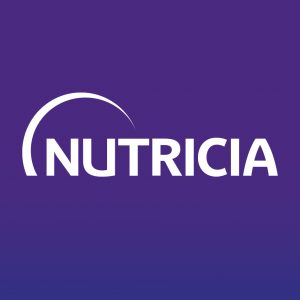Use simple examples to explain ideas
Speak with your metabolic healthcare team about fun activities, games and resources (such as books) that will help your child understand PKU and their diet. Make sure that your child is included in clinic sessions and when they are of an older age where they are comfortable enough, encourage them to spend some time speaking with the healthcare professionals on their own. This will be at different ages for different children, but should occur by high school.
Let your child know they can say “no”
If you haven’t already, teach your child to ask you before eating unfamiliar foods, and that it is okay to say no to anyone who offers food that is unfamiliar, that they are unsure of or know is not a part of their diet.
Tell your child it isn’t his or her fault
A child may not understand why he or she is the only one they know that has PKU, and may think that he or she did something to ‘deserve’ it. Explain to your child that everyone is born with different qualities, such as hair and eye colour, and PKU is something that people are born with, not something that anyone causes. Reinforce to your child that he or she is special, and that this way of eating is to keep him or her healthy.
Stay positive
Sending the right message about foods is important. It is better to talk about off-limit foods as “high protein,” “no,” “red” or “stop” foods rather than “bad” or “naughty” foods. Help your child accept and manage PKU as he or she grows. Try not to say anything negative about the food or PKU supplement to your child but explain that this way of eating is to help him or her stay healthy. Try and stay connected at meal times by preparing meals that look similar to the rest of the family as often as is possible, but the rest of the family should not adopt a low protein diet.
It is important to remember:
- If you seem to be coping well with PKU then they will have a better chance of being accepting of it too
- Talk to them early about it as a part of day to day life, so they are used to it and a part of the decision making
- You’re not alone
- Talk to your child about other people you know who are on a special diet, even if they are adults, so your child knows that he or she is not the only one on a special diet. Take the opportunity to meet other children with PKU in clinic or at events.
- Don’t panic or worry too much if things aren’t perfect. Learning to eat is a process and takes time for all children.
How can I get my child more involved in their diet?
Children are naturally curious. Begin to include your child in preparing food from an early age. Let them measure and weigh their food and show your child what you’re doing. Talk to them as food is prepared, so they get used to identifying foods and how they fit into the diet.
As your child begins to learn to count, he or she can begin to help with recording his or her protein intake. You can make it into a counting game, and even a memory game about what he or she has eaten.
How do I talk to my child about PKU supplements?
Treat their PKU supplement as a ‘special drink’ that will make your child ‘grow well and stay healthy’. Give lots of positive prompts and praise but let your child know that drinking the PKU supplement is something they have to do.
PKU Diet Traffic Light Game
Many parents use the Traffic Lights example to teach children about the 3 kinds of food in PKU diet.
The Traffic Light Game
- Draw three circles resembling traffic lights on a large poster board or piece of paper and colour them green, yellow, and red
- Cut out pictures of many different types of foods from magazines or websites
- To start the game, explain to your child that there are three kinds of foods: “green*”, “yellow**” and “red***”
- Work with your child to organise foods according to each colour
- *Green = foods that are low in protein/Phe and are allowed freely in quantities.
- **Yellow = foods that are okay to be eaten in measured quantities – this quantity of protein is counted in grams.
- ***Red = foods that are high in protein and best avoided.
Once your child understands these ideas, you can create more Traffic Light games to improve or test knowledge. New food pictures can create a fun challenge for your child as he or she figures out where each new food belongs on the traffic light, or you can test your child’s recognition by placing a “red” food on the green light, or vice versa, and asking which of the foods does not belong. The Traffic Light may also help you talk about diet choices with your child. Children familiar with the Traffic Light will readily understand what a “green” food or “red” food is, and this offers a way for parents to say no to foods without using the word “no” constantly. Some parents may also choose to refer to foods as “low protein” and “high protein” foods for this same reason.
Please Note: The dietary management for PKU varies for each person so all information presented here is for guidance only. Your own dietitian and/or doctor will advise you on all aspects relating to management of PKU for you and your family.









